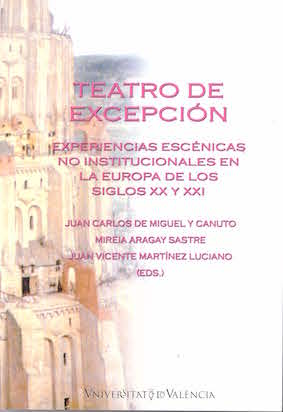On the Margins: Dementia and the Present Moment
DOI:
https://doi.org/10.7203/qf-elit.v19i0.5202 Abstract
Abstract
This article discusses the use of puppetry within work with people with dementia. Drawing on Foucault’s notion of knowledge being constructed within structures of power relations, it challenges the idea of productivity as purpose, and highlights the potential of imagination, creativity and the lived moment to enable wellbeing. The article analyses two key case studies undertaken at memory cafes and day centres in Devon, UK, where participants in the projects were invited to contribute to the development of performance through interaction with puppetry and related activities. The article further analyses the particular qualities of puppetry to enable these kind of exchanges, and their potential as flexible and responsive objects, capable of operating on multiple levels simultaneously to promote creative activity. Further examples of work undertaken in the USA, Argentina, Germany and Sweden are discussed.
Keywords: puppetry; dementia; memory; Foucault; narrative.
 Downloads
Downloads
Downloads
Published
How to Cite
-
Abstract289
-
PDF (Español)174
Issue
Section
License
 Este obra está bajo una licencia de Creative Commons Reconocimiento-NoComercial-SinObraDerivada 4.0 Internacional.
Este obra está bajo una licencia de Creative Commons Reconocimiento-NoComercial-SinObraDerivada 4.0 Internacional.
Authors who publish with this journal agree to the following terms:
- Authors retain copyright and grant the journal right of first publication with the work simultaneously licensed under a Creative Commons Attribution License that allows others to share the work with an acknowledgement of the work's authorship and initial publication in this journal.
- Authors are able to enter into separate, additional contractual arrangements for the non-exclusive distribution of the journal's published version of the work (e.g., post it to an institutional repository or publish it in a book), with an acknowledgement of its initial publication in this journal.
- Authors are permitted and encouraged to post their work online (e.g., in institutional repositories or on their website) prior to and during the submission process, as it can lead to productive exchanges, as well as earlier and greater citation of published work (See The Effect of Open Access).




